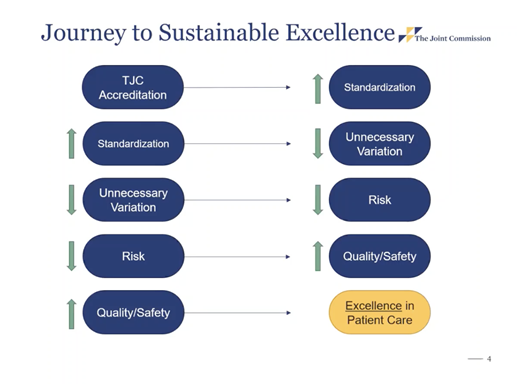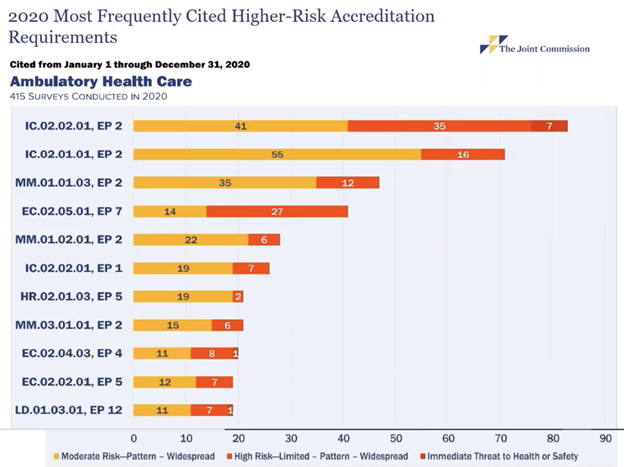The Joint Commission Explains Critical Areas of Focus for ASC Accreditation
Ambulatory surgery centers are urged to focus on standardization and reducing risks, in order to help increase the level of high-quality, cost-effective care.
The Joint Commission, which accredits and certifies over 2,200 healthcare organizations, has been around for 70 years. For the past 47 years, though, it has specifically been serving ambulatory surgery centers. Recently, Valerie Henry, the commission’s business development manager of ambulatory care services, spoke with TASCS members on the “commitment to meeting certain performance standards.”

“Our process is for organizations to focus on increasing standardization and reducing unnecessary variations,” Henry explained. “In doing so, you are reducing risks and focusing on increasing the level of quality and safety, which leads to excellence in patient care.”
As of 2022, The Joint Commission updated some of its policies, and Henry went over a few key revisions. There are new leadership and performance improvement requirements, as well as updates to the life safety code requirement. She also covered some frequently asked questions and explanations of best practices for surgery centers, involving safety requirements and the credentialing process.
ASCs are required to run fire drills quarterly and must exercise emergency plans at least once annually. To help make the drills more engaging for staff, Henry recommended using hazard vulnerability analysis, as well as influence from natural disasters and issues each region faces, in order to help make the drills applicable.
For credentialing surveys, Henry said there is a list of policies and procedures to adhere to in The Joint Commission’s ambulatory care manual. To ensure new ASCs in Texas are receiving these credentials in time, the commission prioritizes new deeming status ASC surveys, as long as there are no COVID-19 spikes in the region. For these new centers, the number one thing to focus on is ensuring staff has access to and is complying with manufacturer instructions for use of disinfection and sterilization processes. Also, when the surveyor is there, ASCs should make sure to appoint the right people, sharing the most accurate information.

Some of the higher-risk accreditation requirements fall under infection control, medication management and environment of care. These areas are critical to providing safe, quality care to patients. The top two areas of deficiency are both in infection control and involve failure to follow the manufacturer’s instructions for sterilization and use, which is why these instructions are critical for all ASCs.
As surgery centers focus on these areas, Henry recommended ensuring adequate infection control leadership in each center, as well as appropriate staff training and periodic reviews to ensure everyone is educated in these compliance areas.
While accreditation isn’t a mandatory process, centers can pursue it to help ensure patients are receiving the best quality of care possible from staff, all while keeping valuable reports related to patient safety.

